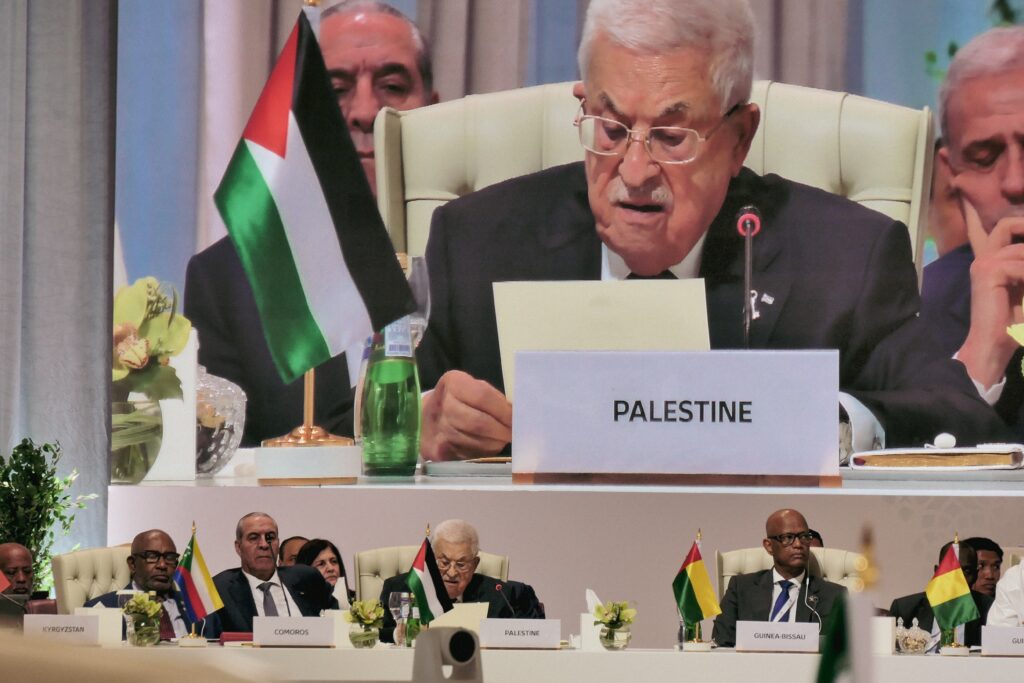IN THE MEDIA
Path to recognition is as flawed as it’s always been
September 22, 2025 | Allon Lee

Courier Mail – 22 September 2025
Barring any unforeseen developments, Australia will recognise a Palestinian state at the United Nations General Assembly on Tuesday, Australian time.
The Federal Government’s main argument justifying recognition was articulated by PM Anthony Albanese and Foreign Minister Penny Wong on August 11: “The Netanyahu Government is extinguishing the prospect of a two-state solution by rapidly expanding illegal settlements… and explicitly opposing any Palestinian state.”
Regrettably, Labor has largely ignored the rejectionist policies of successive Palestinian leaders – the real, primary impediment to peace. It has also failed to give appropriate weight to the extraordinary efforts past Israeli governments, including Netanyahu’s, made for peace.
This mindset was evident in a 2011 piece by Labor’s longest serving foreign minister Gareth Evans who dismissively wrote:
“[Israel PM Yitzhak] Rabin [who oversaw the Oslo peace process’ start in 1993] knew that the only way to ensure a democratic Jewish state… was to accept a Palestinian state alongside it… They would share Jerusalem as a capital, and find a mutually acceptable solution to the… return of Palestinian refugees. Rabin’s murder was a catastrophe from which the peace process has never recovered. No Israeli leader since has shown anything like his far-sighted vision, commitment, and capacity to deliver a negotiated two-state solution. [Israeli PMs] Ehud Barak and Ehud Olmert came close, but not close enough.”
In fact, Rabin said his vision was for a Palestinian “state minus” – a self-governing entity with strong autonomy, but without full sovereignty. Security and a united Jerusalem would remain under Israeli control.
Barak and Olmert, not Rabin, put forward proposals offering all of what Evans outlined as necessary to create a viable Palestinian state, but they were knocked back.
Barak’s historic offers in July 2000 and January 2001 to create a Palestinian state prompted US President Clinton to say he couldn’t believe they were rejected by Palestinian Authority (PA) President Yasser Arafat.
Likewise, Olmert’s September 2008 proposal to current Palestinian President Mahmoud Abbas was even more generous and left US Secretary of State Rice stunned. Yet Abbas later boasted on Israeli TV that he rejected Olmert’s offer “out of hand”.
Netanyahu tried his hand at a peace deal in 2013/14.
According to US President Obama’s mediator, Martin Indyk, in 2014 Netanyahu “sweated bullets” to achieve a framework deal but Abbas had “checked out”. Since then, Abbas has refused to negotiate at all on a final status deal.
It is important to know all this history when assessing the Albanese Government’s decision to recognise a Palestinian state – predicated on commitments President Abbas gave to the PM in a telephone call, and a letter he wrote to the French government.
These verbal reassurances reportedly included reform of the PA’s governance, termination of payments that reward Palestinians who carry out terrorism, reform of school materials that indoctrinate hatred for Jews, demilitarisation, and the holding of general elections within 12 months.
The PM also claimed the PA had “restated its recognition of Israel’s right to exist” and promised that Hamas would play no role in the governance of a Palestinian state.
The Government’s efforts to seek these commitments surely indicate an awareness, at some level, of which party was responsible for the failure of the Oslo process and why.
But there are very serious doubts about the PA’s ability or intention to fulfil these assurances – not least because recent polling (Dec. 2023) shows 64% of Palestinians support “Continued struggle until the liberation of all historic Palestine,” – that is, Israel’s violent destruction. Moreover, as of May 2025, 59% of West Bankers supported the October 7 massacre.
Then there is the PA’s willingness to truly bar Hamas from a political role.
In May 2024, asked his thoughts on Hamas “playing no part in a governing body,” then-Palestinian Ambassador to Australia Izzat Abdulhadi told ABC Radio, “this is the position of the Australian government. I think who will decide about this is the Palestinians themselves through democratic elections.”
It is not like recognition could be reversed if the PA doesn’t fulfill its commitments – which appears overwhelmingly likely given its long history of similar promises that were never implemented. And what other leverage does Australia have over the PA?
We and other nations are trading our only means of incentivising Palestinian reforms essential to a viable two-state outcome for some purely verbal “commitments” from an 89-year-old autocrat – who is now in the 20th year of his elected four-year term, and has overseen rampant corruption, widespread human rights abuses and terrible misgovernment throughout his tenure.
The Oslo peace process of the 1990s failed because the Palestinian Authority refused to accept the “two-states for two peoples” formula for peace.
If world leaders who intend to recognise a Palestinian state had a better grasp on history, they would internalise that the same rejectionist positions by the PA that doomed Oslo are still in play.
And given that Palestinian President Abbas’ assurances in English are cancelled out by the hateful anti-peace and often pro-terrorist rhetoric constantly ringing out loud and clear from the PA in Arabic, granting recognition to supposedly encourage a “two-state solution” amounts to a dangerous delusion.





